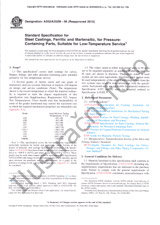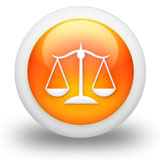Potřebujeme váš souhlas k využití jednotlivých dat, aby se vám mimo jiné mohly ukazovat informace týkající se vašich zájmů. Souhlas udělíte kliknutím na tlačítko „OK“.
ASTM D5917-15(2019)
Standard Test Method for Trace Impurities in Monocyclic Aromatic Hydrocarbons by Gas Chromatography and External Calibration
Přeložit název
NORMA vydána dne 1.6.2019
Informace o normě:
Označení normy: ASTM D5917-15(2019)
Poznámka: NEPLATNÁ
Datum vydání normy: 1.6.2019
Kód zboží: NS-951554
Počet stran: 8
Přibližná hmotnost: 24 g (0.05 liber)
Země: Americká technická norma
Kategorie: Technické normy ASTM
Kategorie - podobné normy:
Anotace textu normy ASTM D5917-15(2019) :
Keywords:
aromatics, external standard, gas chromatography, impurities, purity, p-xylene, toluene, xylenes,, ICS Number Code 71.040.50 (Physicochemical methods of analysis),71.080.15 (Aromatic hydrocarbons)
Doplňující informace
| Significance and Use | ||||||||||||||||||||||||||||||||
|
5.1 Determining the type and amount of hydrocarbon impurities remaining from the manufacture of toluene, mixed xylenes, and p-xylenes used as chemical intermediates and solvents is often required. This test method is suitable for setting specifications and for use as an internal quality control tool where these products are produced or are used. Typical impurities are: alkanes containing 1 to 10 carbons atoms, benzene, toluene, ethylbenzene (EB), xylenes, and aromatic hydrocarbons containing nine carbon atoms. 5.2 Purity is commonly reported by subtracting the determined expected impurities from 100.00. However, a gas chromatographic analysis cannot determine absolute purity if unknown or undetected components are contained within the material being examined. 5.3 This test method is similar to Test Method D2360, however, interlaboratory testing has indicated a bias may exist between the two methods. Therefore the user is cautioned that the two methods may not give comparable results. |
||||||||||||||||||||||||||||||||
| 1. Scope | ||||||||||||||||||||||||||||||||
|
1.1 This test method covers the determination of the total nonaromatic hydrocarbons and trace monocyclic aromatic hydrocarbons in toluene, mixed xylenes, and 1.2 Total aliphatic hydrocarbons containing 1 through 10 carbon atoms (methane through decanes) can be detected by this test method at concentrations ranging from 0.001 to 2.500 weight %. 1.2.1 A small amount of benzene in mixed xylenes or 1.3 Monocyclic aromatic hydrocarbon impurities containing 6 through 10 carbon atoms (benzene through 1.4 In determining the conformance of the test results to applicable specifications, results shall be rounded off in accordance with the rounding-off method of Practice E29. 1.5 The values stated in SI units are to be regarded as standard. No other units of measurement are included in this standard. 1.6 This standard does not purport to address all of the safety concerns, if any, associated with its use. It is the responsibility of the user of this standard to establish appropriate safety, health, and environmental practices and determine the applicability of regulatory limitations prior to use. 1.7 This international standard was developed in accordance with internationally recognized principles on standardization established in the Decision on Principles for the Development of International Standards, Guides and Recommendations issued by the World Trade Organization Technical Barriers to Trade (TBT) Committee. |
||||||||||||||||||||||||||||||||
| 2. Referenced Documents | ||||||||||||||||||||||||||||||||
|
Doporučujeme:
Aktualizace zákonů
Chcete mít jistotu o platnosti užívaných předpisů?
Nabízíme Vám řešení, abyste mohli používat stále platné (aktuální) legislativní předpisy.
Chcete vědět více informací? Podívejte se na tuto stránku.




 Cookies
Cookies
